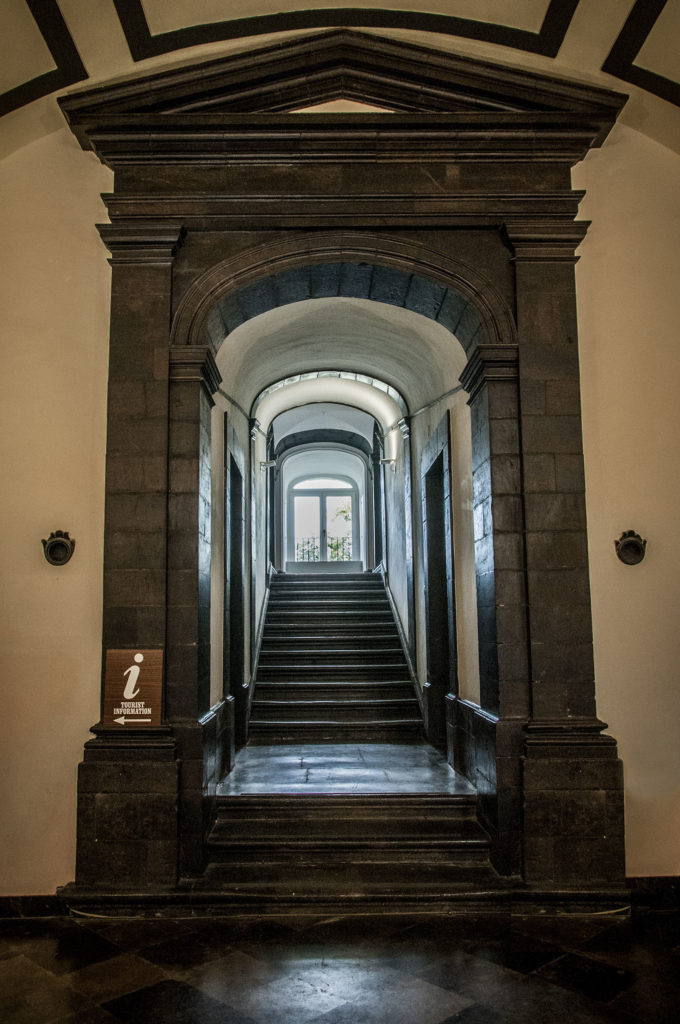The entrance portal to the Palazzo della Cancelleria stands out from the façade, occupying a large part of it. It unravels like a front curtain, ready to welcome an equally admirable scene inside. It is animated by the mixtilinear trabeation that surmounts it.
 Pietra pece is one of the most commonly used materials in the Hyblaean landscape.
Pietra pece is one of the most commonly used materials in the Hyblaean landscape.
Also called bituminous rock, this stone takes on different shades of grey and brown and is characterised by veins and surface irregularities.
Touching the stone is the best way to appreciate its nature.